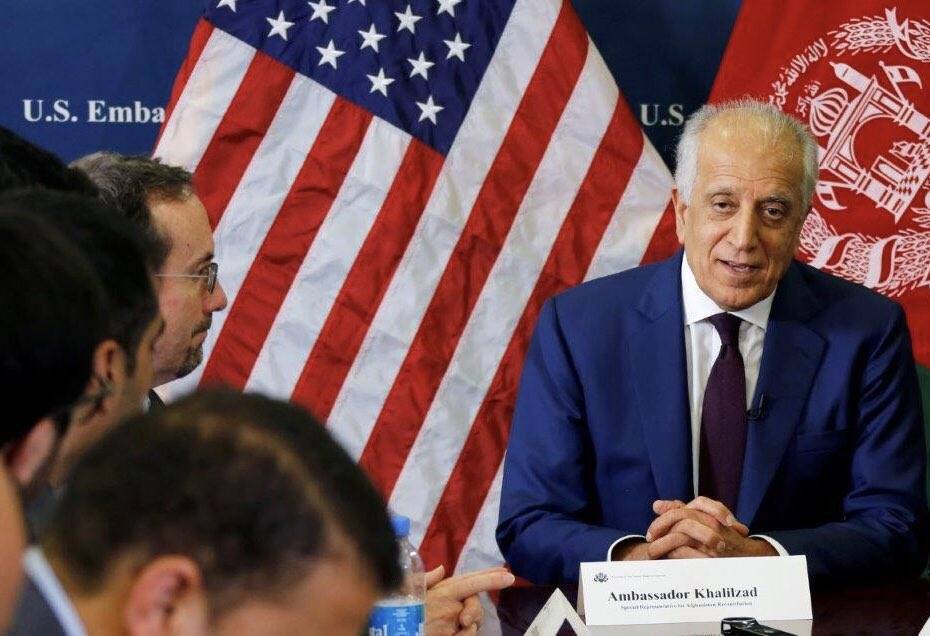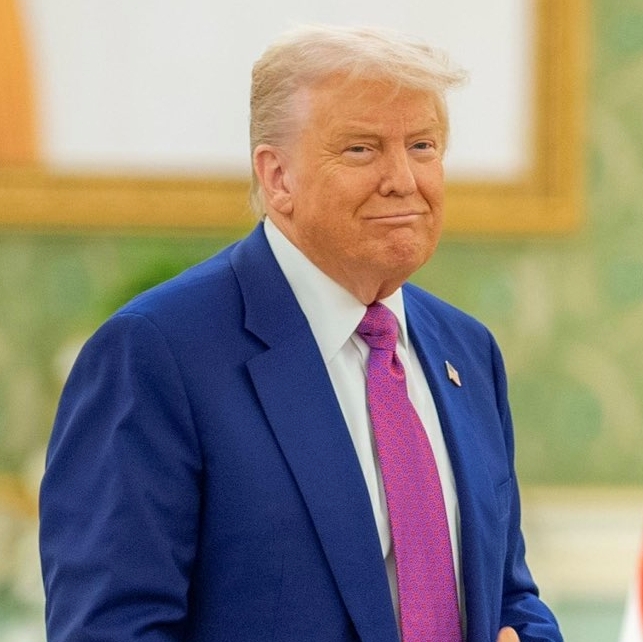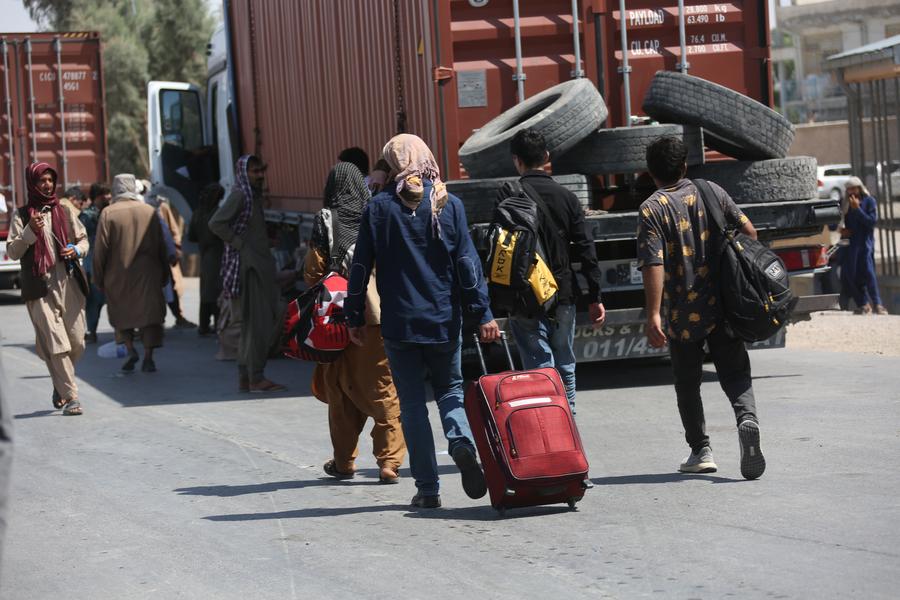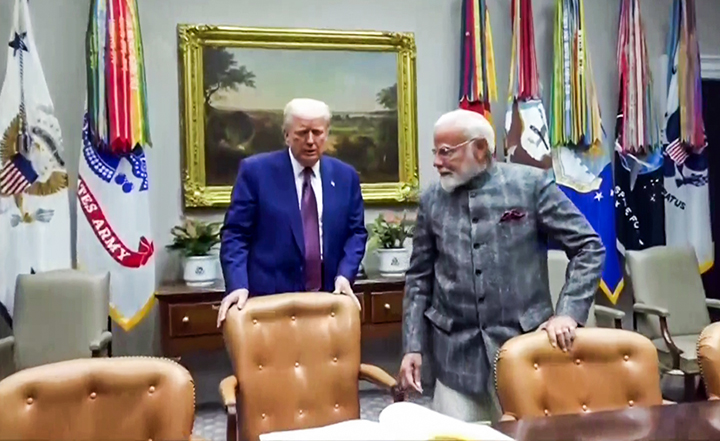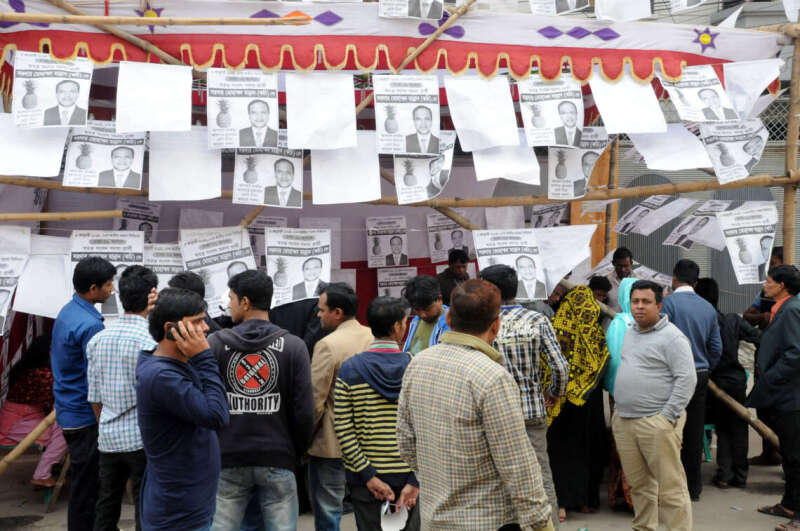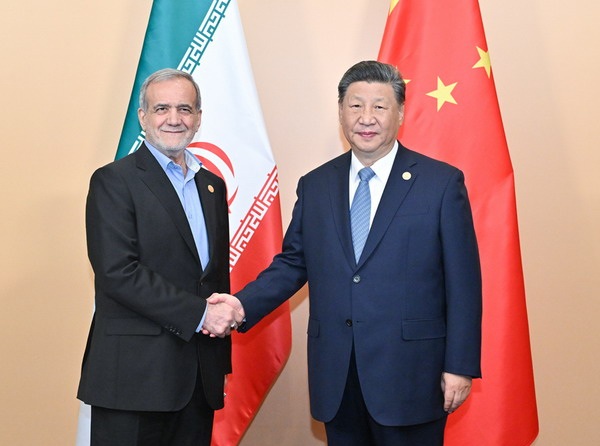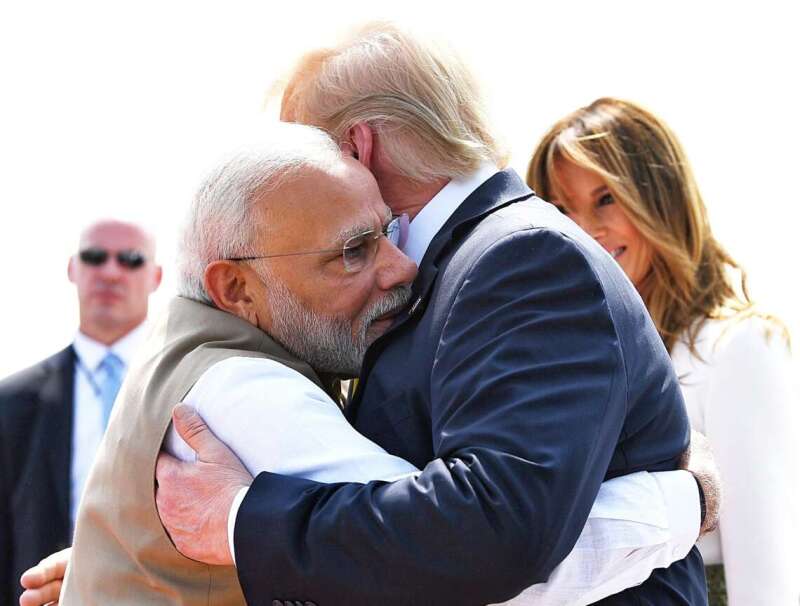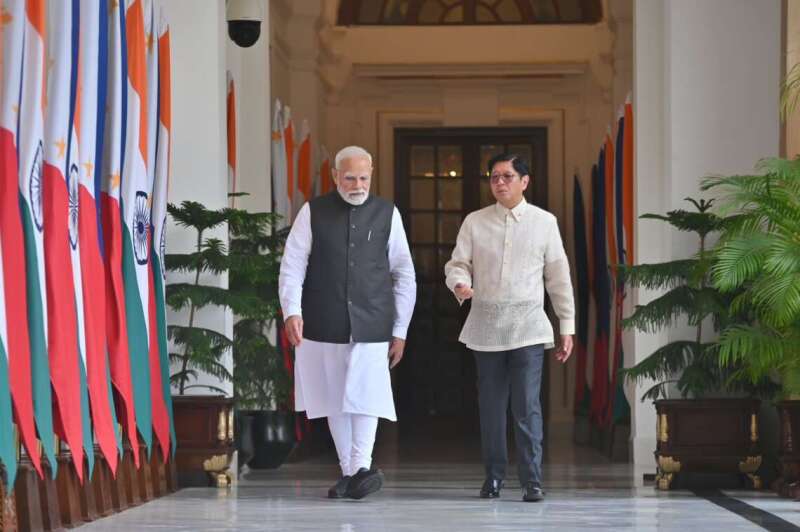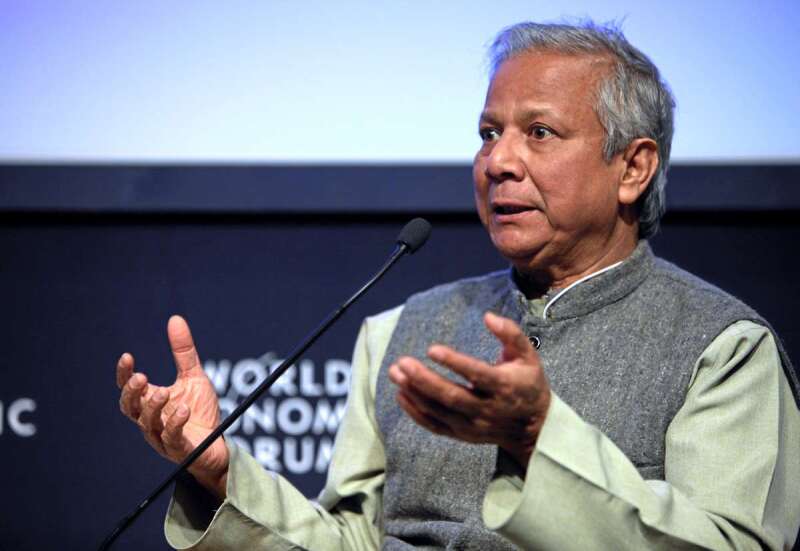Zalmay Khalilzad’s bleak assessment of the peace process coincides with Taliban advances on provincial capitals that have uprooted tens of thousands of civilians, reports Asian Lite News
The Taliban and the Kabul government are far apart in US-backed talks on bringing peace to Afghanistan, with the insurgents demanding “the lion’s share of power” in any new government, the special US envoy has said.
Afghan-born veteran US diplomat Zalmay Khalilzad’s bleak assessment of the peace process coincides with Taliban advances on provincial capitals that have uprooted tens of thousands of civilians as the US troop pullout nears completion after 20 years of war.
“At this point, they (the Taliban) are demanding that they take the lion’s share of power in the next government given the military situation as they see it,” Khalilzad told the Aspen Security Forum in an online conference.
The deadlocked negotiations in Doha were the subject of a telephone call on Tuesday between US Secretary of State Antony Blinken and Afghan President Ashraf Ghani, with them agreeing on the need accelerate talks, the US State Department said.
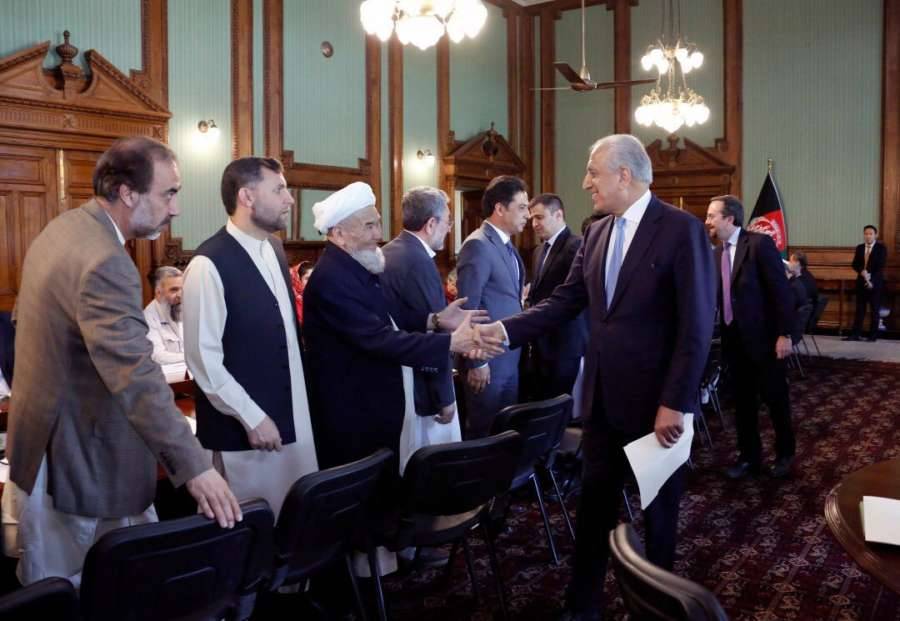
Blinken and Ghani also “condemned the ongoing Taliban attacks and displacement of the civilian population,” State Department spokesman Ned Price said in a statement.
The Taliban’s rapid advances have fueled fears that the insurgents aim to re-establish by force their harsh brand of Islamist rule ended by the 2001 US-led invasion, including the repression of women and the independent media.
The insurgents say they want a peace deal.
Price told reporters that the insurgents would become “international pariahs” if they renege on their commitment to the negotiations “and the concern on the part of all of us, one of the many concerns, is that the result will be civil war.”
A car bomb blast followed by sporadic gunfire hit Kabul on Tuesday near the heavily fortified “Green Zone,” leaving three civilians and three attackers dead.
Khalilzad was the architect of the US-Taliban deal for a US troop pullout reached in February 2020.
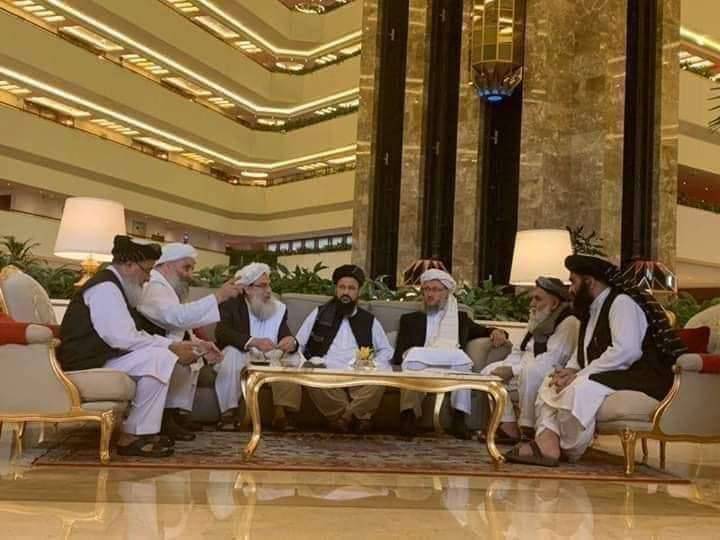
In his rare public assessment of the Doha talks started under that deal, Khalilzad said peace can only be reached through a ceasefire and negotiations that would establish a transitional government.
Ghani’s administration says the talks should focus on “bringing the Taliban into the current government,” he said.
The Taliban contend that Ghani’s government “is the result of military occupation” and they want an agreement on a transitional government and constitution, Khalilzad continued.
“They are far apart,” he said. “They are trying to affect each other’s calculus and the terms by what they are doing on the battlefield.”
Khalilzad said that 40 years of continuous conflict “has no legitimacy any more.”
“It’s a struggle for a balance of power, dispensation of power between various factions, and no Afghans, especially civilian Afghans, should die because of that,” he added in remarks that risked angering the US-backed Ghani government.
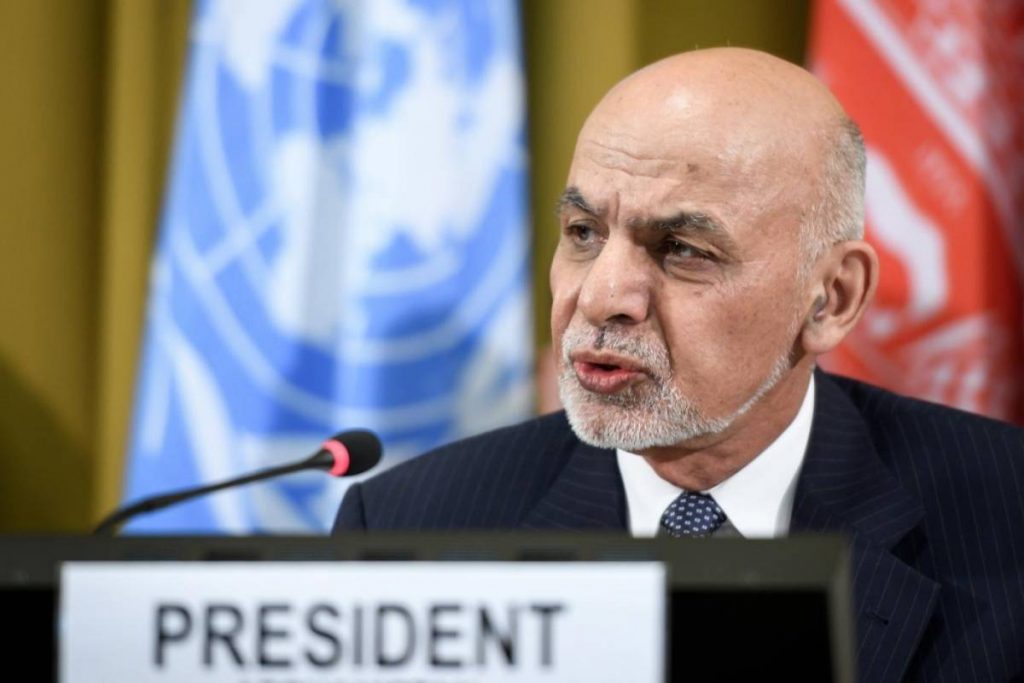
Petraeus slams US pull-out
America has deserted its responsibility to protect rights and freedoms in Afghanistan, Gen. David Petraeus, the former US commander in the country, has told The Times.
With the Taliban rapidly sweeping up territories that were until recently defended by US-led coalition troops, Petraeus warned that a “medieval Islamist regime” and the return of terror-training safe havens are a realistic possibility.
Tens of thousands of Afghans have already started fleeing their homes as the Taliban start to take ground around Kandahar, the country’s second city.
“The rest of the world will see that we are not supporting democracy or maintaining the values that we promote around the world — human rights, particularly women’s rights, the right to education and freedom of speech and press — all very imperfect in Afghanistan, to be sure, but vastly better than if the Taliban reinstates a medieval Islamist regime,” Petraeus said.
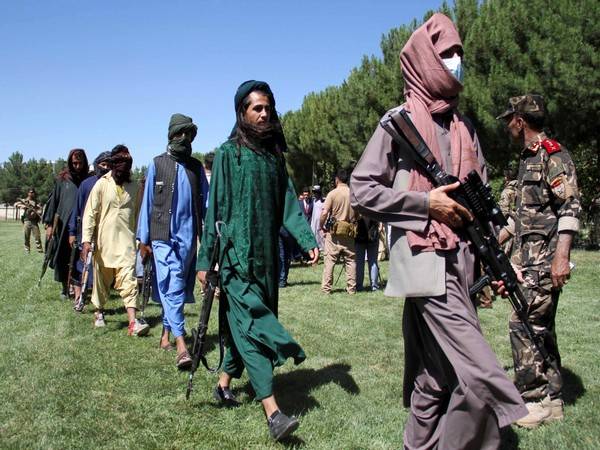
“The worst-case scenario is we could see a bloody, brutal civil war similar to that of the 1990s when the Taliban prevailed,” he added.
“If that were to happen we would likely see the return of an Al-Qaeda sanctuary, although I don’t think Al-Qaeda would be able to threaten the homeland and Europe in the near-term. And certainly, our intelligence services and military will be watching for that.
“But it would be easier for Al-Qaeda if the Taliban seize control. We would see millions of refugees flooding into Pakistan and other neighboring countries. If the Taliban do take control we will see dramatic reductions in freedoms for Afghan citizens, particularly women. I don’t think this is what the world wants to see.”


